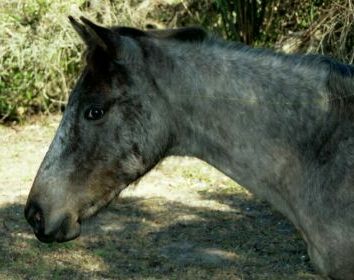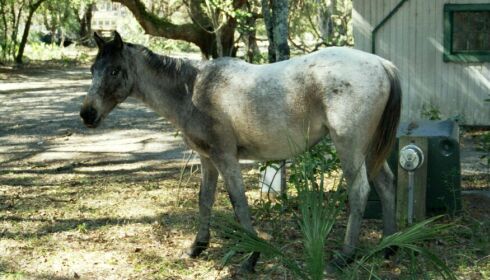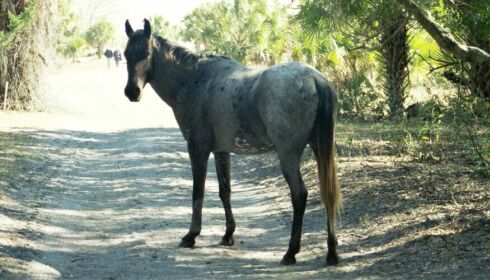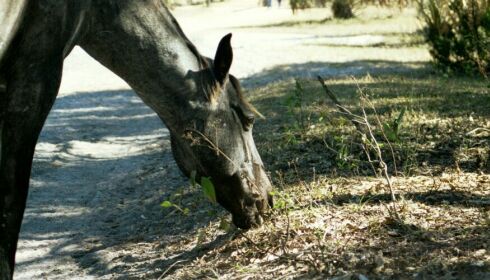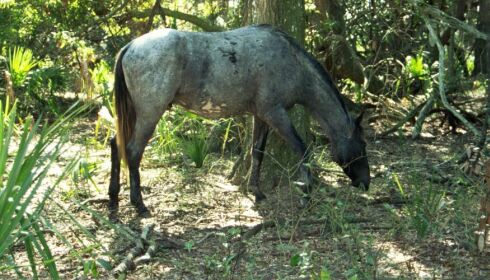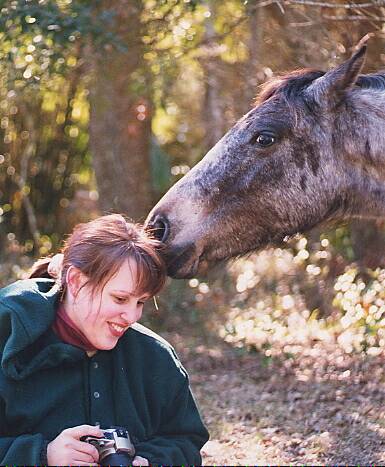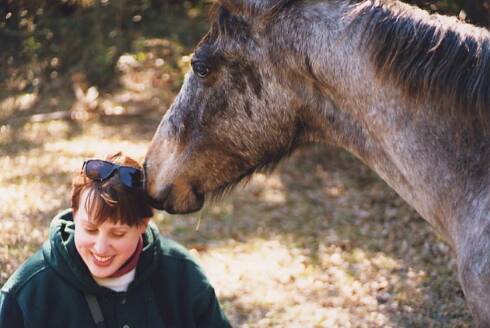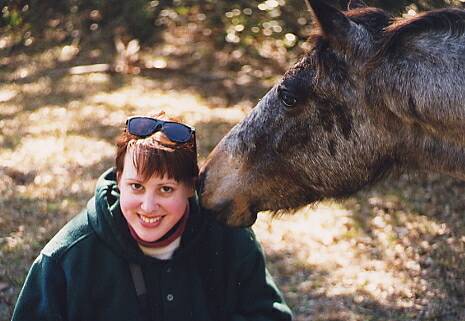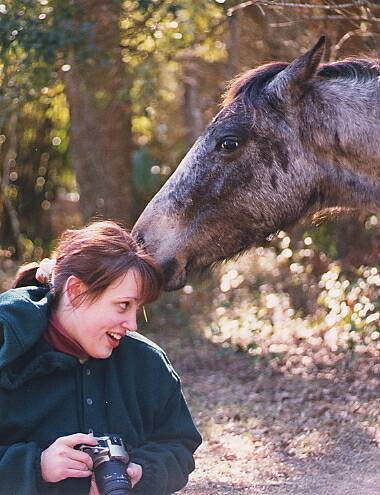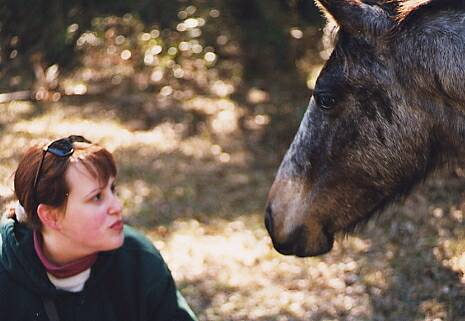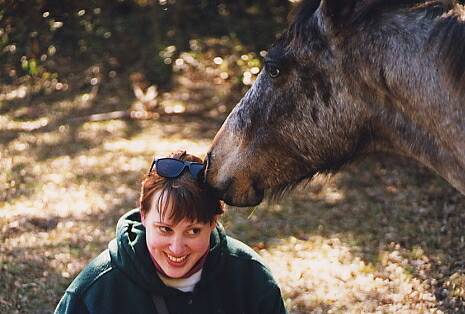 |
| The Wild Horses of Cumberland Island
When visiting Cumberland there are several very important items to remember: 1. The horses on Cumberland, while accustomed to seeing humans, are in no way tame. 2. They are not to be ridden, touched, or fed. 3. Horses leave horse piles. Lots of them. Big ones. And they leave them in the middle of the road. Don't bring shoes that can't be cleaned. James asked me to bring him back a souvenir from the island. I brought him a small baggy of horse manure. For those of you who aren't in the know - it's very dry. It's still rather like the grass they eat. James seemed to appreciate it. :-) Click here to see an Aerial photo of a small herd of horses on the Island.
Having said that, a horse may approach you. This is because some people can't seem to understand the "no feeding" rule. So a horse may come up to you for a snack. You may be tempted to give him one - but don't! Human food can make them ill - and it will just reinforce bad behavior (on both sides)!
During our trip to Cumberland we slowly and carefully approached a horse while it was grazing. We did not attempt to touch it - we just got close enough to snap a few pictures. It was in the road and we had to pass it if we wished to continue on our journey.
Jean was taking some photos of the horses when I bent down to get some film out of my backpack. This poor horse thought I was going to give him a treat! He walked up to me - while I was still on my knees - and proceeded to nuzzle my head. It was very gentle but believe me - it's teeth were very large when seen up close. I stayed as still as I could while talking softly and calmly. I was very nervous, but excited, that it decided to check me out. I didn't particularly want to get bit or kicked by a horse that got annoyed when I wouldn't feed it - but at this point I didn't have much choice. If I got up before it was ready for me to get up I feared it might spook and hurt me. So I waited and talked to it. The whole time Jean is taking pictures!
Finally it figured out that I wasn't going to give him anything so he went back to grazing on the side of the road. I was relieved. However, I hadn't brought anything to get horse spit out of my hair...
More pictures of the horse trying to decide whether or not to eat my hair.
No, no horsey... sunglasses are NOT edible.
You want me to say "coochie" what to this creature? I don't THINK so, Jean!
Most of these feral horses are descendants of those brought to Cumberland Island in the 1920's by Thomas Carnegie. While some horses were brought to the island by the English in the 1700s, these were shot when the Spanish defeated them in a battle over a fort. Horses later brought over by the English, and their feral descendants, were mostly captured and sold during the Revolutionary and Civil Wars.
So, Cumberland's 200-300 horses are NOT native creatures. Management of them has been controversial. The horses eat native plants and destroy others by trampling them. They also trample the dunes and eat sea oats. This is a great threat to the dune ecosystem. Efforts to reduce their numbers have been met with opposition by those who feel the horses deserve the same protection as native species (however, there are far fewer defenders of the feral pig population, which is regularly thinned by controlled hunts). Various types of human birth control methods have been studied. While I feel the horses should be treated humanely, the island should not be sacrificed to save them.
|
